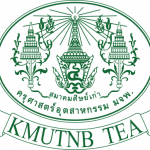Across Borders & Budgets Nigerias Economic Forecasts, Political Maneuvering & Key Updates shaping ni
- Across Borders & Budgets: Nigerias Economic Forecasts, Political Maneuvering & Key Updates shaping nigeria today news landscape, offering insights for investors and citizens alike.
- Economic Performance and Forecasts
- Political Landscape and Governance
- Security Challenges and Regional Stability
- Infrastructure Development and Investment Opportunities
Across Borders & Budgets: Nigerias Economic Forecasts, Political Maneuvering & Key Updates shaping nigeria today news landscape, offering insights for investors and citizens alike.
Nigeria’s economic and political landscape is undergoing significant shifts, attracting considerable attention from investors and citizens alike. Understanding these developments is crucial for navigating the complexities of the nation. Today news focuses on the interplay between economic forecasts, political maneuvering, and key updates that are shaping the nation’s trajectory. This analysis will delve into factors influencing Nigeria’s growth, potential challenges, and opportunities for the future.
The Nigerian economy, heavily reliant on oil revenue, faces a period of both uncertainty and potential. Fluctuations in global oil prices continue to exert a strong influence, however, diversification efforts are gaining momentum, with sectors like agriculture, technology, and services demonstrating resilience. Recent policy changes, including adjustments to the exchange rate and monetary policies, are aimed at stabilising the economy and attracting foreign investment. These measures, however, are not without their challenges, as inflation remains a concern for many Nigerians.
Economic Performance and Forecasts
Nigeria’s economic performance has been marked by periods of growth and contraction. In recent years, the economy has faced headwinds from declining oil prices, security challenges, and the impact of the COVID-19 pandemic. However, despite these setbacks, there are signs of recovery and growth in certain sectors. The non-oil sector, in particular, has demonstrated resilience, driven by expansion in agriculture, manufacturing, and the digital economy. Looking ahead, economic forecasts suggest a modest recovery, contingent on sustained efforts to diversify the economy and improve the business environment.
Several key factors will influence Nigeria’s economic outlook. Fiscal policy, including government spending and taxation, will play a vital role in shaping economic growth. Monetary policy, managed by the Central Bank of Nigeria, will be crucial in controlling inflation and maintaining exchange rate stability. Infrastructure development, particularly in the areas of power, transportation, and digital connectivity, is also essential for unlocking economic potential.
Understanding these factors is vital for investors seeking opportunities in Nigeria. Diversification of investment portfolios, coupled with a long-term perspective, will be key to mitigating risks and maximising returns. Furthermore, deepening engagement with the local business community and fostering strong relationships with government stakeholders can facilitate successful investments.
| GDP Growth Rate (%) | 3.1 | 3.9 | 4.2 |
| Inflation Rate (%) | 21.8 | 24.0 | 18.5 |
| Oil Price (USD/Barrel) | 95.0 | 85.0 | 80.0 |
| Exchange Rate (NGN/USD) | 460 | 470 | 490 |
Political Landscape and Governance
Nigeria’s political landscape is characterized by a multi-party system, with a history of both stability and challenges. The presidential election of 2023 marked a significant shift in the nation’s political trajectory. The change in leadership brought with it new promises of reform and a renewed focus on addressing critical issues such as insecurity, corruption, and infrastructure development. The effectiveness of these initiatives will be a key determinant of Nigeria’s future prosperity. The current political environment is also shaped by a complex interplay of regional interests, ethnic tensions, and socio-economic disparities.
Good governance is essential for fostering economic growth, social progress, and political stability in Nigeria. Strengthening democratic institutions, promoting transparency and accountability, and upholding the rule of law are vital for building trust and confidence among citizens and investors. Addressing corruption, which remains a significant challenge, is particularly crucial. Investing in education, healthcare, and social welfare programs are also essential for inclusive growth and reducing inequality.
Navigating the political terrain requires a nuanced understanding of the country’s dynamics. Building strong relationships with government officials, civil society organizations, and local communities is essential for effective advocacy and engagement. Furthermore, actively participating in policy dialogues and supporting initiatives that promote good governance can contribute to a more stable and prosperous Nigeria.
- Strengthening electoral processes and ensuring free and fair elections.
- Promoting transparency and accountability in government operations.
- Addressing corruption and impunity at all levels.
- Investing in education and healthcare to improve human capital development.
- Fostering dialogue and reconciliation to address ethnic and regional tensions.
Security Challenges and Regional Stability
Nigeria has faced significant security challenges in recent years, stemming from a number of sources including terrorism, banditry, and communal conflicts. These threats not only undermine economic development but also pose a humanitarian crisis, displacing communities and creating instability. The government has implemented a range of security measures, including military operations and community policing initiatives, in an effort to address these challenges. However, a comprehensive approach, encompassing socio-economic development, conflict resolution, and intelligence gathering, is essential for achieving sustainable peace and security. The ongoing unrest has a spillover effect on neighboring countries, highlighting the need for regional cooperation.
Addressing security concerns requires a multifaceted approach. Investing in intelligence gathering and strengthening law enforcement agencies are crucial for preventing and responding to security threats. Addressing the root causes of conflict, such as poverty, inequality, and marginalization, is also essential. Building trust between security forces and local communities is vital for fostering cooperation and gathering intelligence. Promoting peace education and fostering dialogue between different groups can also help to prevent future conflicts.
Maintaining regional stability is crucial for Nigeria’s security and economic prosperity. Collaborating with neighboring countries on border security, intelligence sharing, and counter-terrorism initiatives is essential. Supporting regional peacekeeping efforts and promoting political dialogue can also help to address conflicts and prevent the spread of instability. A stable and secure region is vital for fostering trade, investment, and economic development.
Infrastructure Development and Investment Opportunities
Nigeria’s infrastructure deficit poses a significant constraint on economic growth. Inadequate power supply, poor transportation networks, and limited digital connectivity hinder productivity and competitiveness. However, the government is prioritizing infrastructure development, with a focus on attracting private sector investment. Key infrastructure projects include the construction of new roads and railways, the expansion of port capacity, and the development of renewable energy sources. These initiatives have the potential to unlock significant economic opportunities and improve the quality of life for Nigerians. A recent push for public-private partnerships (PPPs) aims to leverage private sector expertise and capital.
Investment opportunities in Nigeria’s infrastructure sector are abundant. The power sector, in particular, presents significant potential for investment, given the country’s vast energy gap. The transportation sector, including roads, railways, and ports, also offers attractive opportunities. The digital economy, with its rapidly growing internet penetration and mobile phone usage, is another area of high potential.. Investors should carefully assess the risks and opportunities associated with each project, taking into account the regulatory environment, political risks, and financial viability.
Successful infrastructure development requires a conducive regulatory environment, transparent procurement processes, and effective project management. The government needs to strengthen its capacity to oversee infrastructure projects and ensure that they are completed on time and within budget. Prioritizing local content and skills development will also contribute to the sustainability of infrastructure investments. The ongoing reforms aimed at improving the ease of doing business are a positive step towards attracting more investment.
| Power | 80 | High |
| Transportation | 65 | Medium-High |
| Digital Infrastructure | 30 | High |
| Agriculture | 45 | Medium |
- Diversify the economy away from oil dependence.
- Invest in infrastructure development to improve connectivity and productivity.
- Strengthen governance and combat corruption.
- Improve the business environment and attract foreign investment.
- Promote inclusive growth and reduce inequality.
Nigeria stands at a critical juncture, with significant opportunities and challenges ahead. Addressing the economic and political complexities, coupled with strategic investments in infrastructure and human capital, will pave the way for a brighter future. A sustained commitment to good governance, transparency, and the rule of law will foster trust and attract investment. Ultimately, Nigeria’s success hinges on its ability to harness its vast potential and create a more prosperous and equitable society for all its citizens.



